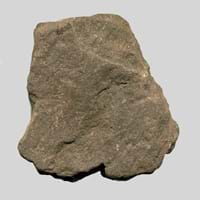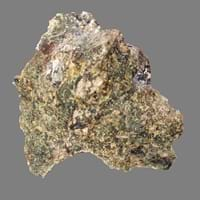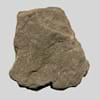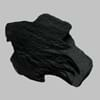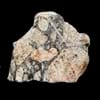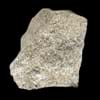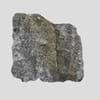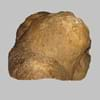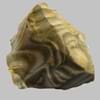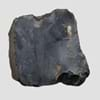Definition
Shale is a fine-grained sedimentary rock which is formed by the compaction of silt and clay-size mineral particles
Harzburgite is a plutonic rock of the peridotite group consisting largely of orthopyroxene and olivine
Discoverer
Unknown
Unknown
Etymology
From German Schalstein laminated limestone, and Schalgebirge layer of stone in stratified rock. From Old English scealu in its base sense of- thing that divides or separate,
From the name of a town in Harzburg, Germany
Class
Sedimentary Rocks
Igneous Rocks
Sub-Class
Durable Rock, Medium Hardness Rock
Durable Rock, Medium Hardness Rock
Group
Not Applicable
Plutonic
Other Categories
Fine Grained Rock, Opaque Rock
Coarse Grained Rock, Opaque Rock
Texture
Clastic, Splintery
Phaneritic
Color
Black, Brown, Buff, Green, Grey, Red, Yellow
Dark Greenish - Grey
Durability
Durable
Durable
Appearance
Muddy
Rough and Shiny
Interior Uses
Decorative Aggregates, Homes, Interior Decoration
Decorative Aggregates, Homes, Interior Decoration
Exterior Uses
As Building Stone, As Facing Stone, Office Buildings
As Building Stone, As Facing Stone, Garden Decoration, Office Buildings, Paving Stone
Other Architectural Uses
Curbing
Curbing
Construction Industry
Cement Manufacture, Construction Aggregate, for Road Aggregate, Making natural cement, Raw material for the manufacture of mortar
As Dimension Stone, Cobblestones
Medical Industry
Not Yet Used
Not Yet Used
Antiquity Uses
Artifacts, Sculpture
Artifacts, Monuments, Sculpture, Small Figurines
Commercial Uses
Creating Artwork, Pottery
Creating Artwork, Gemstone, Jewelry, Source of Chromite, Platinum, Nickel and Garnet, Source of Diamonds
Types
Red Shale, Black Shale, Green Shale, Grey Shale and Yellow Shale
Not Available
Features
Easily splits into thin plates, Generally rough to touch, Very fine grained rock
Constitutes upper part of the Earth's mantle, Generally rough to touch, Is one of the oldest rock
Archaeological Significance
Famous Monuments
Jantar Mantar in India
Data Not Available
Famous Sculptures
Data Not Available
Data Not Available
Formation
Shale forms when very fine-grained clay particles are deposited in water which settle at the bottom of water bodies. They are later compacted hence forming shale.
Harzburgite is a fine-grained, hard rock which is a type of metasomatite, essentially altered basalt. It forms with or without crystallization, either below the surface as intrusive rocks or on the surface as extrusive rocks.
Mineral Content
Albite, Biotite, Calcite, Chert, Chlorite, Dolomite, Hematite, Micas, Muscovite or Illite, Pyrite, Quartz, Silica, Sulfides
Amphibole, Chromite, Garnet, Magnesium, Olivine, Phlogopite, Plagioclase, Pyroxene
Compound Content
Ca, Fe, Mg, Silicon Dioxide, Sodium
Ca, Fe, Mg, Potassium, Silicon Dioxide, Sodium, Titanium Dioxide
Types of Metamorphism
Not Applicable
Impact Metamorphism
Types of Weathering
Biological Weathering, Chemical Weathering, Mechanical Weathering
Chemical Weathering, Mechanical Weathering
Types of Erosion
Chemical Erosion, Coastal Erosion, Glacier Erosion
Chemical Erosion, Sea Erosion
Grain Size
Very fine-grained
Coarse Grained
Fracture
Not Available
Irregular
Porosity
Highly Porous
Less Porous
Compressive Strength
Not Available
Specific Gravity
2.2-2.8
3-3.01
Transparency
Opaque
Translucent to Opaque
Density
2.4-2.8 g/cm3
3.1-3.4 g/cm3
Resistance
Heat Resistant, Impact Resistant
Heat Resistant, Pressure Resistant, Wear Resistant
Deposits in Eastern Continents
Asia
Bangladesh, China, India, Russia
Japan, Oman
Africa
Ethiopia, Kenya, Morocco, South Africa, Tanzania
South Africa
Europe
Austria, France, Germany, Greece, Italy, Romania, Scotland, Spain, Switzerland
France, Germany, Italy, Venezuela
Others
Not Yet Found
Hawaii Islands, Mid-Atlantic Ridge
Deposits in Western Continents
North America
USA
Canada, USA
South America
Bolivia, Chile, Colombia, Ecuador, Peru, Venezuela
Not Yet Found
Deposits in Oceania Continent
Australia
New South Wales, New Zealand, Queensland, Victoria, Western Australia
Not Yet Found
